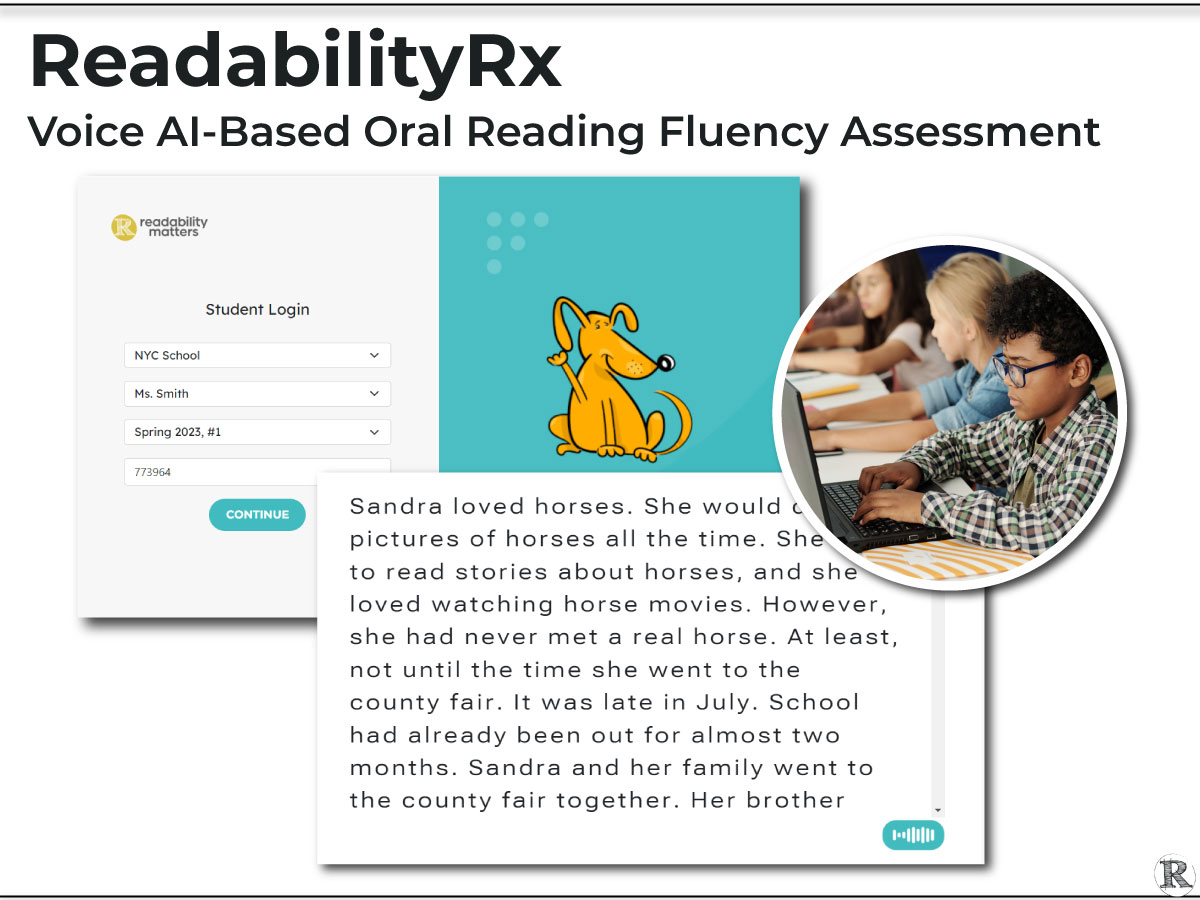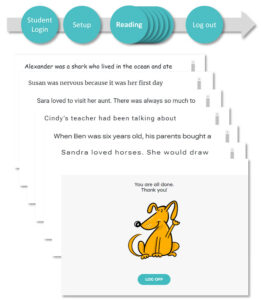Bringing Readability Research into Classrooms
Studying reading in classrooms rather than in a lab is challenging. Conditions are messy: classrooms can be loud, and students can get interrupted or distracted. And yet, in-classroom research is a practical way to generate the insights that education technology companies need to design more accessible, personalized reading experiences. The ability to assess reading in these environments matters.
Drawing on its background in information technology, the Readability Matters team developed ReadabilityRx, an oral reading fluency assessment tool. ReadabilityRx was built using SoapBox Labs’ Voice AI and natural language processing (NLP) technology to analyze oral reading fluency. The goal was to help researchers explore how digital text formats affect reading in dynamic school environments, thereby bridging the gap between carefully controlled studies and everyday learning environments.
ReadabilityRx allows the researcher to design precise text formats using either static or variable fonts and provides fine-grained control over character size, spacing, and width, and line spacing. Carefully leveled reading content is presented in these text formats, and students’ oral reading is recorded and scored by the voice AI system. The student’s reading is evaluated based on the number of words correct per minute (WCPM). This automated scoring enables the collection of high-quality reading data in classrooms, where background noise and changing classroom conditions are part of everyday learning.
Pilot Testing and Classroom Validation
The ReadabilityRx pilot testing was conducted in three New York City public school classrooms to validate the tool in active-learning environments. The teachers’ input helped refine the tool and was critical to the eventual study design, timing, and data collection, ensuring assessments fit naturally into the school day. Their feedback improved usability, student engagement, and data quality.
ReadabilityRx in Use: From Classrooms to Families
To date, the tool has been used in 3 ways:
- The University of Oregon captured detailed fluency data in classrooms, providing precise measures of accuracy, WCPM, and prosody. The tool advanced understanding of how small changes in digital text format can influence reading performance over time. Read more about the project.
- ReadabilityRx version 2.0 was developed for the University of Central Florida researchers. UCF requested the addition of comprehension-question modules to assess student learning across different text formats.
- During the summer of 2025, Readability Matters made ReadabilityRx available to the public for family use. Parents were able to explore how small changes in text format can make reading easier for their children.
Continuing the Work
Through this work, Readability Matters supports classroom-based reading studies. Collecting oral reading data in active classrooms is inherently complex—noise, shifting schedules, and variable attention are all factors. Our goal has been to create assessments that are quick and efficient, minimize teacher burden, and keep students engaged. In-classroom reading assessment requires further collaboration across research, education, and technology partners.
To Learn More
Readability Matters is a nonprofit working to advance research and technology that deliver personalized reading formats to improve outcomes for all readers. Contact the Readability Matters team at [email protected] to learn more about ReadabilityRx or explore collaboration opportunities.
Acknowledgments
The development and testing of ReadabilityRx were made possible by the generous support of Sobrato Philanthropies and Adobe, whose commitment to advancing better readability helped fund this work.
Updated October, 2025





